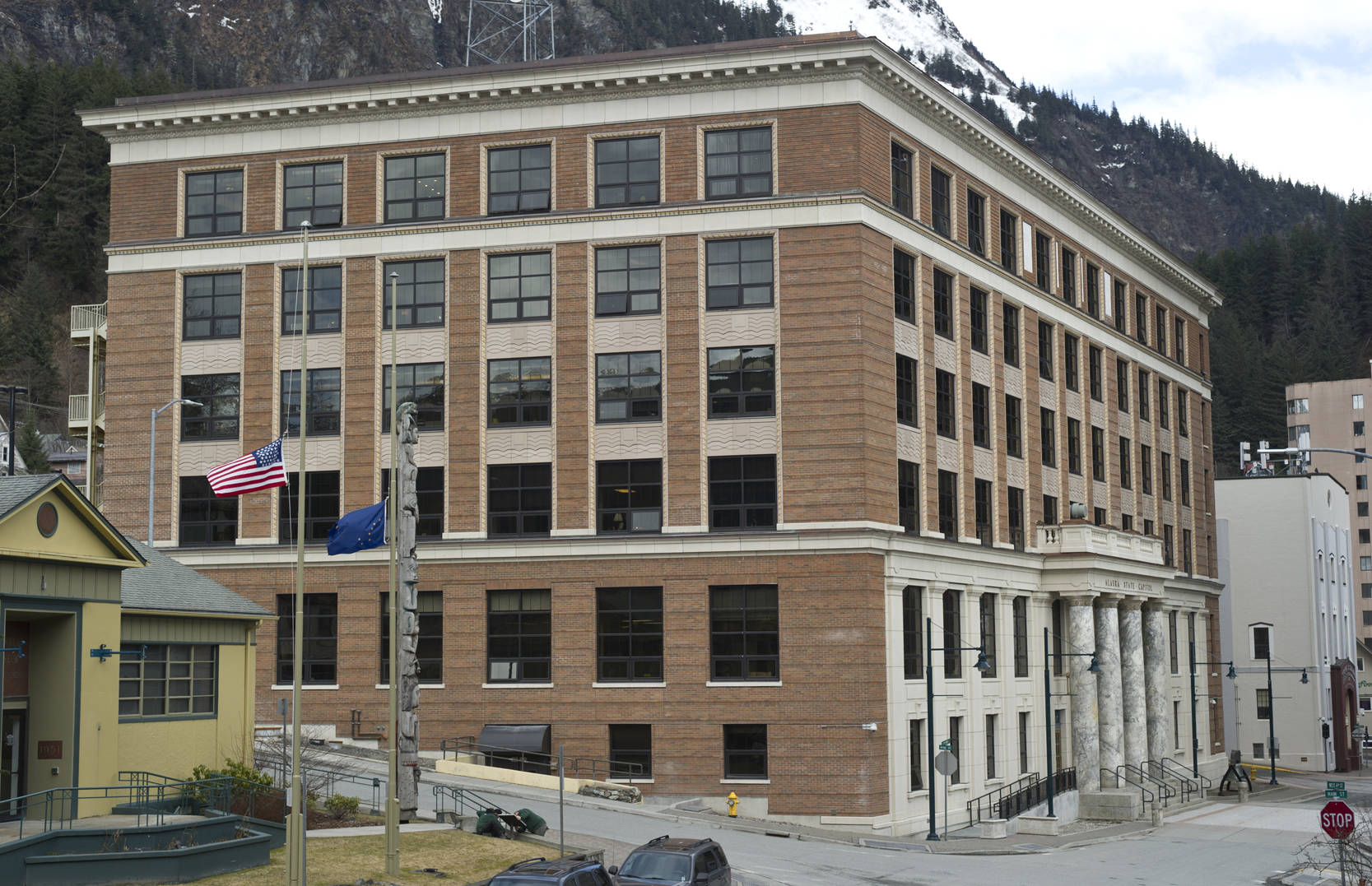Correction: The first version of this article incorrectly stated that one of the four pillars of the coalition Alaska House Majority’s plan to balance the state deficit is higher oil prices. The article should have stated “higher oil taxes.” This has been changed.
***
A Monday vote to boost the Alaska Permanent Fund Dividend to more than $2,700 per person has exposed fissures in the coalition majority that controls the Alaska House of Representatives.
On Tuesday, House lawmakers appeared to be struggling to muster 21 votes in favor of the $12 billion state operating budget under consideration. A morning floor session abruptly adjourned after less than 10 minutes and was canceled late Tuesday. The House is scheduled to resume debate at 10:30 a.m. Wednesday. The Alaska Senate Finance Committee canceled meetings it had scheduled later in the week in anticipation of the budget passing from the House to the Senate.
Perhaps the best illustration of the problem is in Juneau’s House delegation, where Rep. Sam Kito III, D-Juneau and Rep. Justin Parish, D-Juneau, are both in the majority but on opposite sides of the issue. Kito voted against the dividend-boosting amendment. Parish voted for it.
“Given our fiscal situation, I have a difficult time supporting a significant increase (in the budget),” Kito said. “The budget without the increase in the dividend was something I thought was workable. But now, it’s a different calculus.”
Other majority lawmakers offered similar opinions.
For many in the House, the issue is one of spending. Until this year, the Alaska Legislature has had two savings accounts to cover a multibillion-dollar state deficit. Traditionally, the earnings reserve of the Alaska Permanent Fund has been used to pay only the Permanent Fund Dividend (and a few other, minor things).
The rest of the deficit has been covered by the Constitutional Budget Reserve, but the reserve is almost exhausted: By June 30, forecasts predict it will contain only $2.2 billion — not enough to cover the expected deficit.
That has lawmakers looking to the earnings reserve to cover the gap. The problem is that according to the projections of the Alaska Permanent Fund Corporation, the reserve does not have enough money to sustainably cover the deficit and pay a dividend using the traditional formula.
Pay a higher dividend, the argument goes, and you have to reduce spending (or come up with new taxes) to keep the Permanent Fund sustainable. A lower dividend means more money for things like education, public safety and transportation.
Rep. Louise Stutes, R-Kodiak and the House Majority Whip, declined to confirm that the dividend boost has made getting to 21 votes more difficult for the House Majority.
“This is a big decision,” she said. “We have to make sure we make the right decision for the people and the state.”
Speaking on the House floor Monday, Parish said cutting the Permanent Fund Dividend amounts to a regressive income tax that impacts poorest Alaskans the most, because the dividend is a much bigger percentage of the earnings of poor Alaskans than rich ones.
“I can’t take the most from those who have the least,” he said.
On Tuesday, Parish expanded on his thoughts.
“It serves to remind us that we do have these really difficult choices to make. Who is going to pay for the deficit? Is it only going to be Alaskans and disproportionately be children, poor people, elders?” he said.
Parish has long supported the House’s four-part plan to balance the deficit: higher oil taxes, an income tax, modest budget cuts and some spending from the Permanent Fund.
If the burden of solving the deficit is spread around, he’s willing to support a lower dividend. Without that additional help, he’s not.
“As part of a broader plan, it’s perfectly reasonable. As the only part of the plan, it’s not just,” he said of the lower dividend.
Kito said that from his perspective, the House has been designing its budget with the idea that the dividend will be about $1,250.
“If I supported a $1,600 dividend, then I would need to support a budget with a $1,600 dividend,” he said.
He worries that a higher dividend could demand money being taken from things like the ferry system.
“I’m worried about jeopardizing some of that,” he said.
Over in the Senate, Sen. Dennis Egan, D-Juneau, has been watching events in the House from afar. He doesn’t think the House’s higher dividend will stand up in the Senate.
“I think there’s not much of a chance,” he said, and the dispute doesn’t answer the key question of the session: How will the Legislature pay for things?
“How the heck are we going to solve it?” he said. “We can’t keep pulling revenue out of places like the earnings reserve.”
• Contact reporter James Brooks at jbrooks@juneauempire.com or 523-2258.

